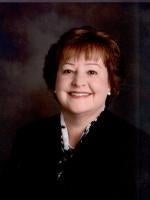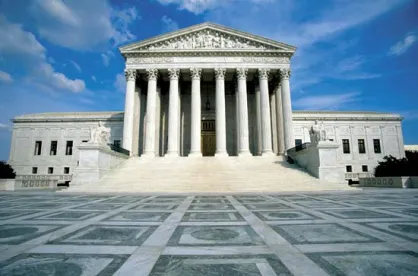The Supreme Court of the United States began its new term on Monday, October 6, 2014. Typically, the Court hears between 60-70 oral arguments per year and reviews approximately another 50-60 more cases on briefs alone. This year, there are two significant employment discrimination cases on the docket.
 The first is Young v. United Parcel Service, set to be heard on December 3. In this case, the Court will decide whether the Pregnancy Discrimination Act (“PDA”) requires an employer that provides work accommodations to non-pregnant employees with work limitations to accommodate pregnant employees who are “similar in their ability or inability to work.” The plaintiff is Peggy Young, a UPS delivery driver who became pregnant and whose doctor recommended that she refrain from lifting packages heavier than 20 pounds. UPS denied Young’s request for accommodation, even though the company had a practice of giving light duty assignments to other employees who were temporarily unable to perform their jobs. UPS instead forced Young to take an extended, unpaid leave of absence until she could return to work after child birth. In addition to wages, Young lost her medical insurance during her leave.
The first is Young v. United Parcel Service, set to be heard on December 3. In this case, the Court will decide whether the Pregnancy Discrimination Act (“PDA”) requires an employer that provides work accommodations to non-pregnant employees with work limitations to accommodate pregnant employees who are “similar in their ability or inability to work.” The plaintiff is Peggy Young, a UPS delivery driver who became pregnant and whose doctor recommended that she refrain from lifting packages heavier than 20 pounds. UPS denied Young’s request for accommodation, even though the company had a practice of giving light duty assignments to other employees who were temporarily unable to perform their jobs. UPS instead forced Young to take an extended, unpaid leave of absence until she could return to work after child birth. In addition to wages, Young lost her medical insurance during her leave.
Young sued UPS under the PDA, which amended Title VII of the 1964 Civil Rights Act definition of “discrimination” to include discrimination in employment “because or on the basis of pregnancy, childbirth, or related medical expenses.” The district court granted summary judgment, ruling that UPS did not discriminate against Young, because its policy was based on “gender-neutral,” “pregnancy-blind” criteria, such as whether an employee was injured on or off the job. The Fourth Circuit Court of Appeals upheld the judgment, concluding that the plaintiff did not present any direct evidence of pregnancy discrimination.
The second case, EEOC v. Abercrombie & Fitch Stores, touches on religious liberty. Teenager Samantha Elauf, a Mulsim, wore a head scarf during her 2008 interview for a position at Abercrombie Kids. Ms. Elauf’s religion was not discussed during the interview. Later, a district manager said that, under the company’s “Look Policy,” employees were not allowed to wear hats to work. Ms. Elauf was then given a low score in the company’s “appearance and sense of style” part of the evaluation, and was not offered a job.
A federal trial judge found the company liable for discrimination, determining that Abercrombie knew Ms. Elauf wore the head scarf for religious reasons. Subsequently, a jury awarded the claimant $20,000 in damages. The appellate court reversed the decision, holding that Ms. Elauf never explicitly notified the company that she had a religious practice that conflicted with company policies. The EEOC said in its petition for review that the ruling could affect civil rights protections in a large number of cases, because job applicants will not always know when their religious practices might present an issue that needs to be addressed with an employer.
Watch this space for details on how the Court rules in these important cases.



 />i
/>i

